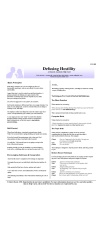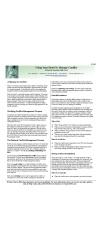Category: FAQ-Listening & Assertiveness
Important: Practical Limits On Assertiveness and Listening
While in theory, the use of assertive skills and various forms of active and reflective listening should work in real life, the reality is that they often do not work the way the experts contend, or the books teach us. You should know about this before you jump in to learn and use assertiveness and certain listening skills.
Effective communication depends on both parties playing “by the same rules“. When both people play by the same rules and respond in predictable ways in their responses, skills like assertiveness and reflective listening work very well. For example, two social workers who understand the “rules” of assertive techniques or active listening, and playing by those rules can be very successful conversing using these kinds of skills. Both value the skills, and both respond according to the “book”.
The problem is that people do not play by the same communication rules. One of the best examples regards certain active listening techniques. Let’s say you are interacting with someone about a somewhat emotional topic. You decide you use active listening and paraphrasing (eg. “If I understand you correctly, you feel like you boss has treated you unfairly and…“. The other person responds: “Don’t you dare patronize me, or treat me like you’re a shrink“.
What’s happened here? You are playing by a set of communication rules, while the other person is using another. To him, your use of listening sounds patronizing (this happens frequently because these kinds of response are rare in untrained “listeners”. You feel insulted and confused. You may get angry and strike back since you’re only trying to help.
This kind of thing happens often. That doesn’t mean you shouldn’t give up on these and other communication techniques, but you need to be aware that people may perceive them exactly opposite to what you intend. And, you need to prepare yourself for unexpected responses so you don’t over-react when your use of these techniques is greeted with anger, disdain, or even insulting remarks.
Assertive communication and listening are two sets of skills commonly described as essential to effective interpersonal communication. It’s true they are important, but what people don’t tell you is that these sets of skills have limits, don’t always work, and in some situations, are simply NOT advisable.
On this page you can access in-depth information about assertiveness and listening techniques, their uses, and when they should not be used, or are likely to fail.
What are the major barriers to listening that I should consciously try to overcome?
Taking steps to be a better listener Effective listening doesn’t just happen. It takes some work and diligence to improve. Here are some of the most common barriers to effective listening from the point of view of the listener. You…
What is “critical listening?”
Critical listening is a form of listening that is usually not mentioned, since it involves analysis, critical thinking and judgment. Making judgments during listening is often considered as a barrier to understand a person, and there’s a lot of truth…
What is “dialogic listening?”
The University of Colorado website has, in addition to a definition of dialogic listening, a great glossary of listening and communication terms and defintion. It defines dialogic listening as: Dialogic listening is similar to active listening, although it emphasizes conversation…
Why does my attention drift when I’m listening?
Relax! It’s normal to have your attention drift when you are listening — even when you are actually trying. Your ability to focus your attention and listen can be developed by practice, and self-awareness, but it’s useful to understand why…






